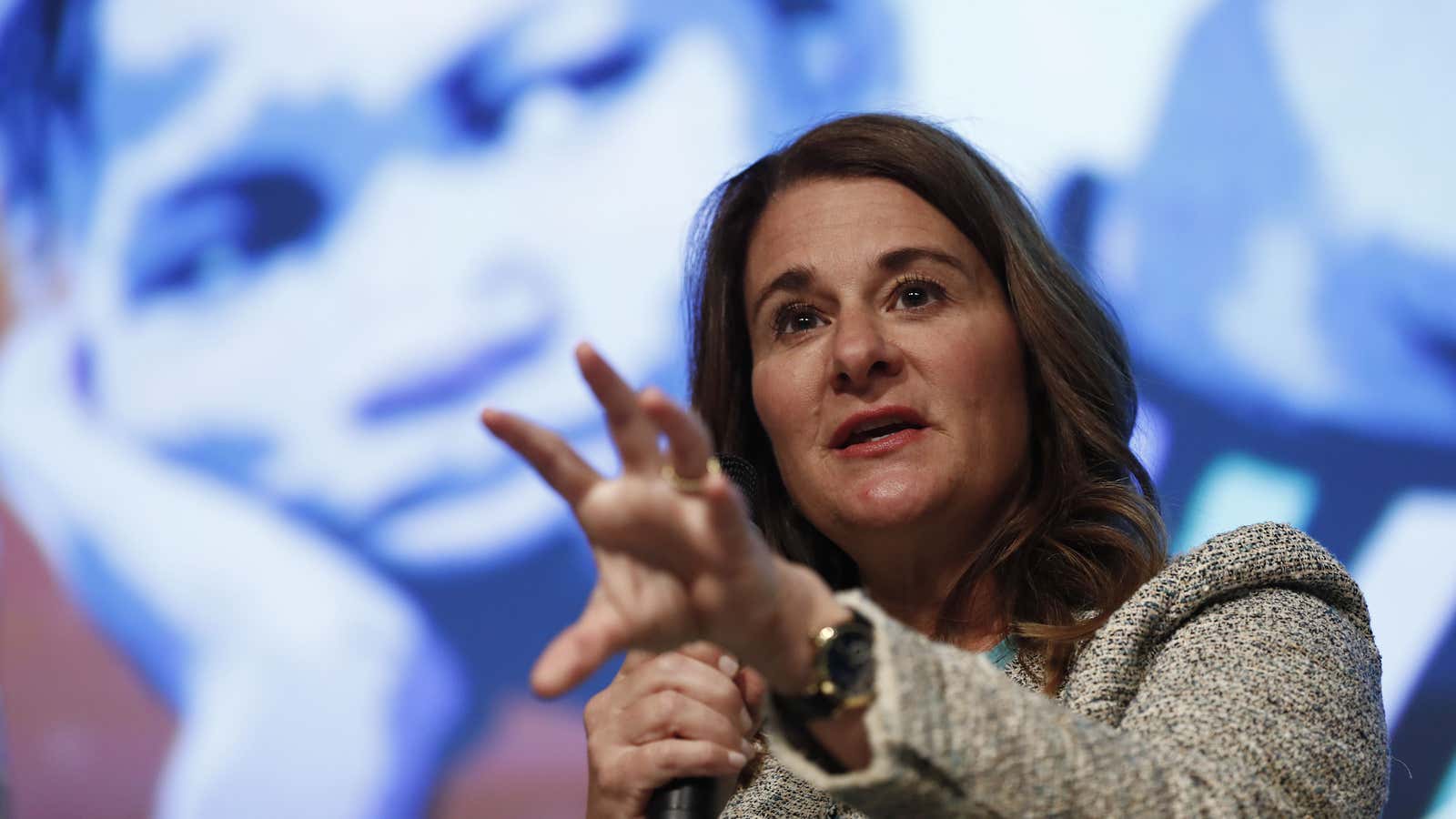“Who are the 12 people you would go to instantly to talk about development?” Melinda Gates asks.
It’s become a harder question to answer in recent years. At the United Nations general assembly (UNGA) a year ago, the billionaire philanthropist worried that global development was losing its intellectual stars. A generation of leaders was starting to retire or pull back from prominence, including people whom organizations such as the Ford Foundation originally identified and supported years ago.
“That list is starting to get more thin,” Gates said in a recent interview. “And so as we start to think about the future, I was like, wow, we need to really have that thought leadership again and we need to make sure it’s driven by the South,” i.e., by the countries that development work is meant to benefit.
Gates returned from the UNGA last year and found colleagues at the Bill & Melinda Gates Foundation who quickly agreed on the need to support new generations of development leaders. One way to do that would be to bring them together to discuss overarching development questions that sometimes get lost in the effort to solve specific or urgent problems.
That idea now has a name: Pathways for Prosperity, an initiative Gates announced today at a dinner held by the foundation on the sidelines of this year’s UNGA. Due to kick off in January, Pathways will likely fund research around the future of work, access to services such as finance and health care, and safety nets to protect the poor and powerless. It will also convene discussions around those topics, potentially extending into hackathons and television programs.
“It’s just time to step back and think about who those leaders are that are being built,” said Gates. “And then what are the issues that the world is going to face?”
The initiative is co-chaired by Gates, Indonesian finance minister Sri Mulyani Indrawati, and Strive Masiyiwa, founder and executive chairman of Econet, a telecom conglomerate. Gates said Pathways will assemble alongside them a core of 10 or 12 development experts, practitioners, technologists, and academics. The Blavatnik School of Government at Oxford University is expected to be the Pathways secretariat, managing and staffing it and directing the research agenda.
Gates and her colleagues know there’s no shortage of existing research and discussion about how to tackle public health, inequality, and poverty, and their related problems. But when they discussed Pathways with governmental and institutional leaders, “one of the things we heard most often is we’re being inundated—mostly in a good way—with specific ideas, but there’s not enough conversation about the grand vision,” said Gargee Ghosh, the Gates Foundation’s director for development policy and finance. “How do I piece that all together into a transformation plan for our country?”
Ghosh said Pathways would support discussion about how technology changes economic development and economic inequality in poor countries. She noted that most conversations about automation are about what it will do to jobs in the industrialized world, but poorer countries are going to be affected just as much.
“We talk a lot about AI [artificial intelligence] in the developed world but what will it mean for the developing world? You’re not seeing that type of debate in the top levels of government in many developing countries,” said Masiyiwa. “This type of partnership helps us think about those challenges.”
